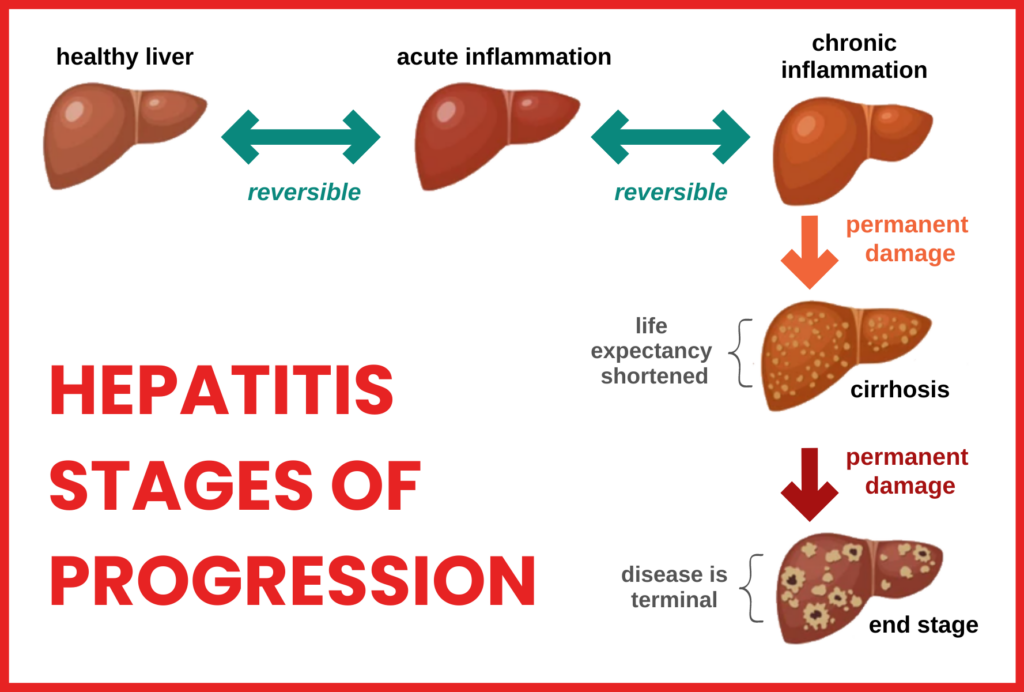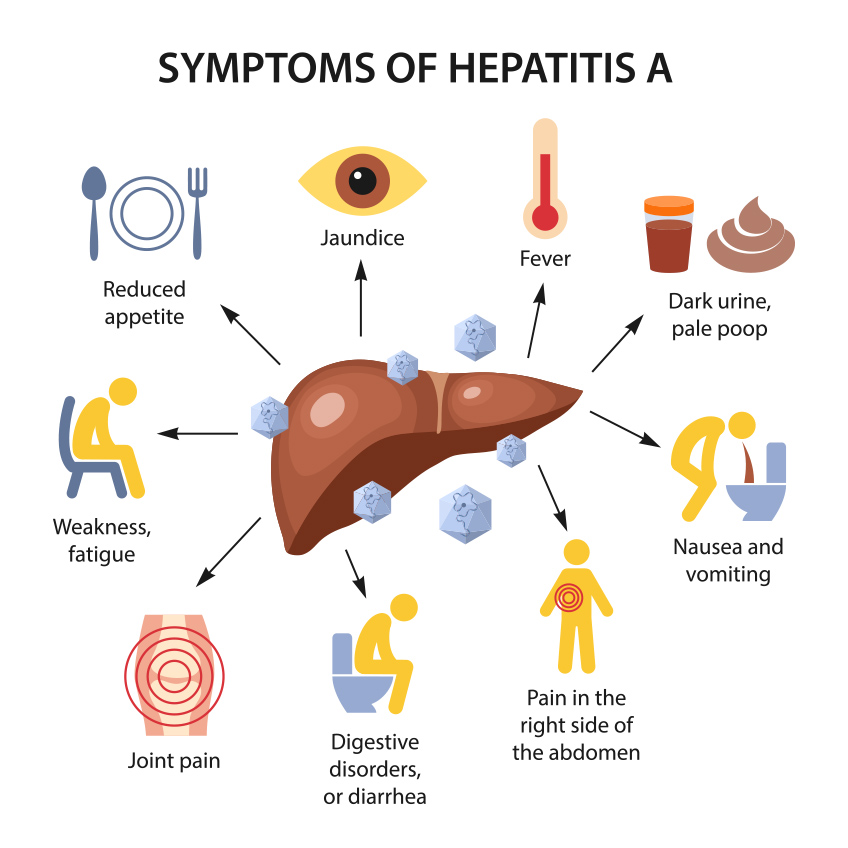Hepatitis. What should everyone know?
However, we often only start thinking about our liver's condition when health problems appear. One of the most serious liver diseases is hepatitis – an inflammatory condition that, if unnoticed, can lead to serious complications. This disease is often called a "silent threat" because it can develop without clear symptoms for a long time.
WHAT IS HEPATITIS?
Hepatitis is a general term used to describe inflammation of the liver. This inflammation occurs when liver cells are damaged due to various factors, such as viral infections, immune system disorders, or exposure to toxic substances. The course of inflammation can vary greatly – from mild and self-limiting to severe, chronic, and potentially life-threatening.
Hepatitis is most commonly associated with viral infections. In medicine, five main types of viral hepatitis are distinguished – A, B, C, D, and E. Although all of these viruses affect the liver, their modes of transmission, disease progression, and severity differ. Besides viral hepatitis, the condition may also develop due to alcohol abuse, certain medications, or autoimmune diseases.
TYPES OF HEPATITIS
Hepatitis A spreads through contaminated food or water, especially in areas with poor hygiene. This form usually lasts for a short period and doesn't cause long-term liver damage but can lead to severe symptoms like nausea, fever, and fatigue.
Hepatitis B is much more dangerous because it can become chronic. The virus is transmitted through blood, sexual contact, or from mother to child during childbirth. Chronic infection may, over the years, develop into liver cirrhosis or cancer.
Hepatitis C spreads through direct contact with infected blood, most commonly through shared needles, blood transfusions, or unsterile tattooing. In many cases, the disease is asymptomatic, but chronic inflammation can severely damage the liver.
Hepatitis D occurs only in people who are already infected with hepatitis B. This combination is particularly dangerous because it significantly increases the risk of complications.
Hepatitis E is mostly transmitted through contaminated water. This infection is especially dangerous for pregnant women, as it may cause serious complications for both the mother and the fetus.

HOW TO RECOGNIZE HEPATITIS SYMPTOMS?
Hepatitis is often called a "silent" disease because, in its early stages, it may not cause clear symptoms. However, as the inflammation progresses, the following signs may appear:
- Weakness and persistent fatigue that does not improve after rest
- Loss of appetite, often accompanied by nausea or vomiting
- Pain or discomfort in the upper right abdomen, where the liver is located
- Dark-colored urine and pale-colored stools
- Jaundice – yellowing of the skin and whites of the eyes
- Fever, most common with hepatitis A and E
Chronic hepatitis (especially types B and C) may show no symptoms for years, until severe liver damage has already occurred. Therefore, regular health check-ups are crucial.
WHY IS HEPATITIS DANGEROUS?
If untreated, hepatitis can lead to many serious health problems. Long-term liver inflammation can cause chronic liver damage, which may develop into liver cirrhosis – scarring of the liver tissue that impairs liver function. In later stages, the liver may fail to perform its vital functions, leading to liver failure.
Furthermore, chronic hepatitis B and C significantly increase the risk of liver cancer. Since the disease often progresses quietly, it is often diagnosed too late, when treatment is more difficult.
HOW TO PROTECT YOURSELF FROM HEPATITIS?
Hepatitis prevention is one of the most effective ways to protect your liver and overall health. Preventive measures depend on the type of hepatitis:
- Vaccination – the safest and most effective protection against hepatitis A and B. Vaccination against hepatitis B also prevents hepatitis D infection
- Hygiene practices – thorough hand washing, using clean water, and consuming safe food help avoid hepatitis A and E
- Safe sexual practices – using protection reduces the risk of hepatitis B
- Avoiding sharing needles or personal hygiene items – crucial to prevent hepatitis B and C transmission
- Regular blood tests – particularly important for people who belong to risk groups

HOW IS HEPATITIS TREATED?
The treatment of hepatitis depends on the type and course of the disease:
In cases of hepatitis A and E, treatment is usually symptomatic – rest, hydration, and a light diet help the body fight the infection. In most cases, these viruses clear from the body on their own.
For hepatitis B, especially if the infection becomes chronic, antiviral medications may be prescribed to suppress viral activity and protect the liver from further damage.
Hepatitis C treatment involves effective antiviral medications, which often allow for complete recovery.
It is important to understand that treatment is most effective when the disease is diagnosed early. Therefore, it is essential not to delay medical consultation if you experience symptoms or belong to a risk group.
Hepatitis is a serious but preventable and manageable disease. Many people are unaware that they may be infected, which is why prevention and awareness are so important. Timely health checks, a responsible approach to health, vaccination, and a healthy lifestyle can protect not only you but also those around you. Everyone should be informed about the dangers of hepatitis and take steps to prevent this disease.
SOURCES OF INFORMATION
- „Hepatitis“ – World Health Organization (WHO)
- „Hepatitis A, B, C, D, and E“ – Centers for Disease Control and Prevention (CDC)
- „Hepatitis: Types, Symptoms, and Treatments“ – Medical News Today
- „Hepatitis Overview“ – Mayo Clinic
- „Viral Hepatitis“ – Johns Hopkins Medicine
- „Hepatitis: Causes, Risk Factors, and Prevention“ – Cleveland Clinic
# hepatitas # kepenys